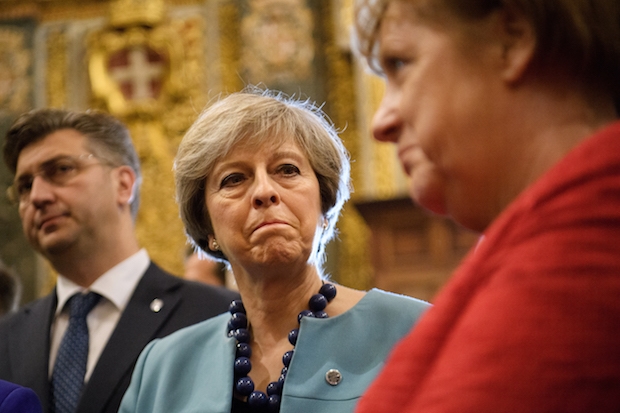Next week’s EU Council will see little progress on Brexit. As I write in The Sun today, migration—not Brexit—is the biggest issue on the agenda for the EU 27.
Migration is roiling European politics again. Angela Merkel’s coalition is threatening to break apart over the issue. While in Italy, the new government is threatening to close its southern border—blocking migrant rescue ships from landing—and open its northern border, encouraging illegal migrants and asylum seekers to head north to Germany and Sweden.
So worried is the European Commission President Jean-Claude Juncker that he is hosting a mini-summit this Sunday to try and come up with some policies that can ease Merkel’s domestic political troubles.
This crisis, though, is making it more difficult for Britain to get a reasonable Brexit deal.
The European Commission is running the Brexit negotiations. Its priority is in defending the theology of the European Union rather than finding practical solutions. As one leading figure in the government laments to me, Brussels’s chief negotiator Michel Barnier ‘won’t budge off CETA with Northern Ireland stuck in the customs union’. This kind of Canada-style free trade deal is regarded by the government as inadequate.
May and co have long hoped that the member states, nearly all of whose economies would be hurt by such a limited agreement, would intervene at some point and tell the Commission to engage more constructively with the UK. But this is happening all too rarely.
Over the last few years, the key to any deal in Europe has been Merkel. Now, she is not going to ride to Britain’s rescue—as David Cameron found to his cost in the renegotiation. But she could push the Commission towards a slightly more pragmatic approach. However, she is now trying to keep her own governing coalition together as well as come up with a deal with the French for Eurozone reform, leaving next to no time for Brexit. I am told that when it is discussed in meetings she is ‘visibly distracted’, turning to aides for advice far more frequently than she does on other topics.
This situation is one of the many reasons why the UK government should have prepared vigorously for no deal: a credible threat to walk away from the table if the Commission didn’t behave in a reasonable fashion would have got the member states’ attention.
But May now must hope that the EU can patch together some deal on migration and that the EU27 begin thinking seriously about what kind of post Brexit relationship they want with this country.







Comments